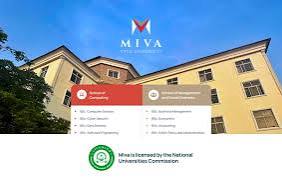Nigeria’s education sector is experiencing a significant shift with the emergence of Miva Open University, a digital institution founded by tech entrepreneur Sim Shagaya. As the country grapples with a severe shortage of university spots and economic challenges, Miva’s innovative approach to tertiary education offers a ray of hope for millions of aspiring students.

The Nigerian education landscape has long been plagued by limited capacity and high costs. With only one in four applicants securing a university place, and inflation soaring at 34%, traditional higher education has become increasingly out of reach for many Nigerians. Miva Open University, launched in May 2023, aims to bridge this gap by leveraging technology to provide accessible, quality education.
In just over a year, Miva has attracted over 2,700 students from across Nigeria and the diaspora. The university’s fully digital model allows students to pursue degrees in fields such as Computer Science, Business Management, and Public Health without the need to relocate or abandon their current jobs. This flexibility is particularly crucial in a country where many adults juggle work and family responsibilities alongside their educational aspirations.
Miva’s approach goes beyond mere online classes. The university has introduced several student-centric features that address common barriers to education in Nigeria. For instance, their “Grandfather Pricing” policy guarantees that a student’s tuition fees remain unchanged throughout their program, providing financial stability in an economy known for rapid price fluctuations.
Moreover, Miva’s initial payment plan of 50,000 Naira allows students to begin their studies without the immediate burden of full tuition. This model could prove transformative in a country where sudden economic shocks often force students to abandon their education midway.
The university’s dedication to student support is evident in its Success Advisor program. Each student is assigned a personal advisor who acts as a guide, motivator, and troubleshooter throughout their academic journey. This personalized approach helps combat the sense of isolation often associated with distance learning and provides crucial support for students navigating the challenges of higher education.
Miva’s Masterclass series, featuring prominent figures from various industries, addresses another critical gap in Nigerian higher education: the disconnect between academic learning and real-world application. By bringing industry leaders into the virtual classroom, Miva is preparing its students for the practical challenges of the job market.
However, as Miva Open University gains traction, it also faces challenges. The digital divide in Nigeria, where internet penetration stands at about 50%, could limit the reach of this online model. Additionally, there may be skepticism about the quality and recognition of online degrees, despite recent policy statements affirming their equivalence to traditional degrees.
Looking ahead, Miva’s success could catalyze broader changes in Nigeria’s education sector. As more students opt for flexible, digital learning options, traditional universities may be forced to adapt their models to remain competitive. This shift could lead to increased innovation and accessibility across the entire higher education landscape.
Furthermore, Miva’s model could have significant implications for Nigeria’s workforce development. By allowing working adults to upskill or change careers without leaving their jobs, the university could play a crucial role in addressing skill gaps in the Nigerian economy.
As Nigeria’s population continues to grow rapidly, with projections suggesting it will become the world’s fourth most populous country by 2050, the need for scalable education solutions is more pressing than ever. While challenges remain, Miva Open University’s innovative approach offers a promising path towards democratizing higher education in Nigeria and potentially serving as a model for other developing nations facing similar educational challenges.




